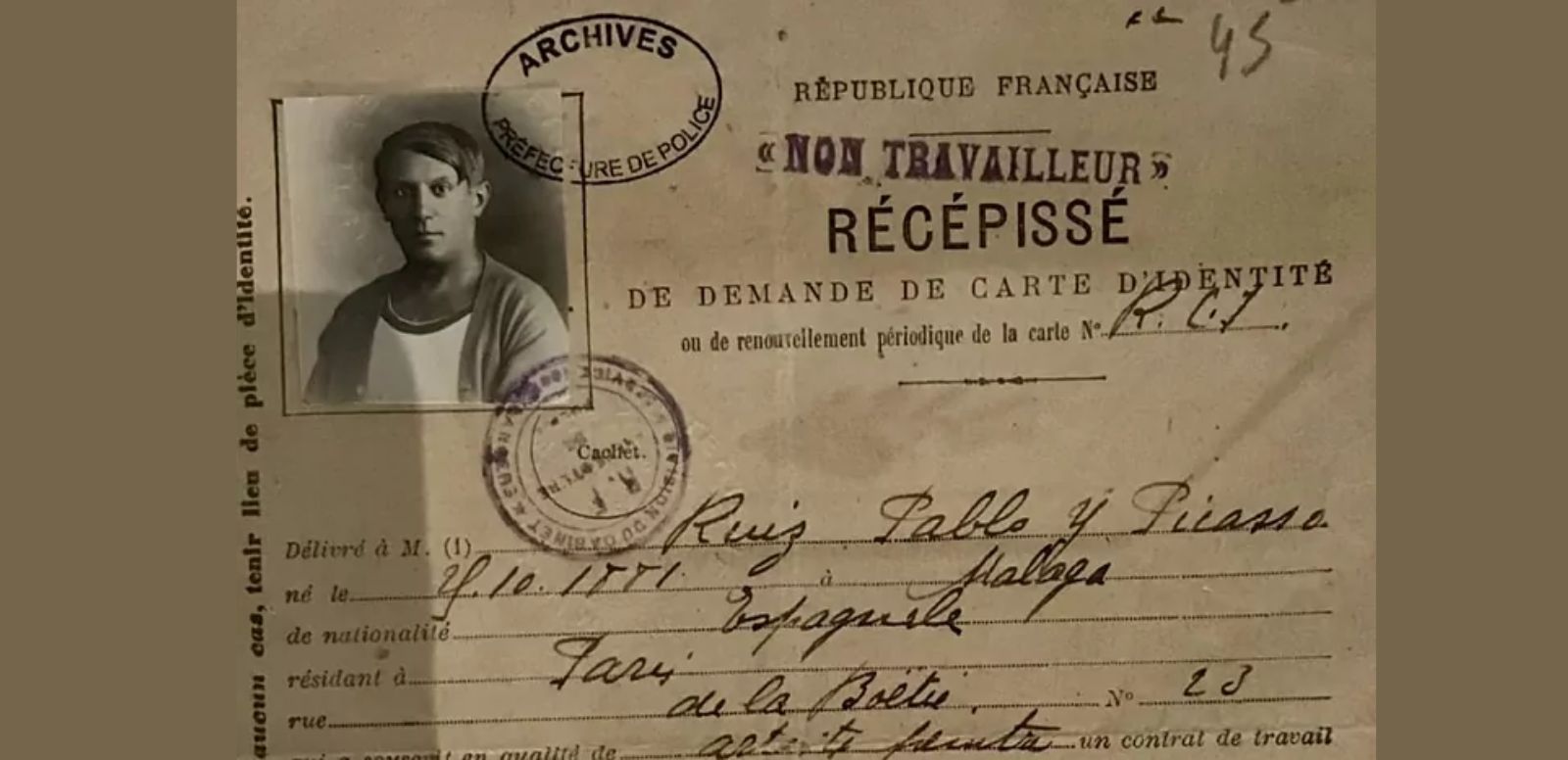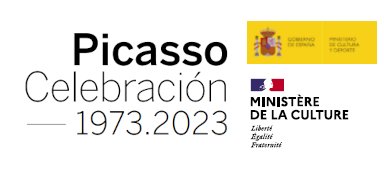
In the ten months that Picasso lived in the house of his dealer, Pere Mañach, in Paris in 1901, he created a total of 64 works. This stay and the works produced attracted the attention of the French police, who kept a close eye on foreigners for fear of the spread of the anarchist movement. The entire Catalan colony of Montmartre was, in fact, under strict surveillance. The French police eventually considered Picasso to be an anarchist, and so reflected in a 1901 report written by commissioner Rouquier, based on hearsay from the concierge of the building where he lived and a review of an exhibition that described his works as depictions of beggars and prostitutes. The accusations would mark the beginning of a police file that would affect Picasso's life and reputation for years to come. These reports would play a decisive role when Picasso applied for French nationality in 1940 and was denied. This is the origin of the image of the painter from Malaga stigmatized with the attributes of being a foreigner, leftist and avant-garde, labels considered dangerous at the dawn of the twentieth century.
The intriguing event is the event on which Annie Cohen-Solal relies in her book A Foreigner Named Picasso to reveal and analyze the barriers he faced as a foreigner, a radical ideologue and an avant-garde artist. The book offers insight into the complexity of Pablo Picasso's life and work from the perspective of a migrant in France and the challenges he faced due to his status.
The author brings to light a little known facet of the artist's life. Picasso arrived in Paris for the second time in May 1901 with the aim of entering the dynamic and exciting Parisian art market and was under police surveillance, suspected of having connections to anarchism. Through documents and police files Cohen-Solal tells how Picasso was treated as a "S-registered", considered dangerous by the authorities despite his lack of a criminal record.
The book also examines Picasso's attempts to obtain French citizenship, particularly in 1940. Despite his connections at the Ministry of Justice, his application was denied when an official revealed the 1901 dossier. Cohen-Solal explores the Malaga-born artist's positioning in a period marked by World War I, the subsequent Nazi occupation and the Cold War.
This book helps to understand the complexity and genius of Pablo Picasso, a revolutionary artist who defied conventions and left an indelible mark on the history of art, through a documented account of one of the most representative episodes in the life of the brilliant artist.
Sources:
Cohen-Solal, A. (no date) Un extranjero Llamado Picasso, Librerías Marcial Pons. Disponible en: https://www.marcialpons.es/libros/un-extranjero-llamado-picasso/9788449340680/
Gil, I. (2021) Cuando Picasso era Investigado por la policía francesa como un enemigo del Estado, El Mundo. Disponible en: https://www.elmundo.es/cultura/arte/2021/11/05/6184e8c4e4d4d8e4488b4598.html

